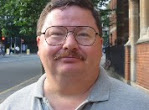The Evil Hours -- by David J. Morris
Some books make you think, and think, and think, and then some more. David Morris's Evil Hours does that very nicely, enough to rudely interrupt clear thoughts of anything else.
The psychological tentacles of largely war-born PTSD touch many people. Not only combat veterans, but rape victims, fatal accident survivors, and so many others who carry stressful, dramatic, and unshakable instances and images. Many never completely escape their bouts with profound trauma. Some get help, and, unfortunately, too many do not.
Morris addresses as much of this affliction as possible, called by many names until researchers arrived at PTSD in 1980. This book has something for almost everyone because there are numerous PTSD victims, and many know someone who did, or does, have it to some extent. Big city police, emergency room medical staffs, and many others face and deal with their own harmful stress. Research and treatment have grown in recent years, potentially handing Morriss the material to outdo this terrific read with something even stronger.
Parts of Evil Hours read like a NYT bestseller, while a few others lacked the same energy. There's a chance he could be too deep into his topic for any return soon. He experienced his own PTSD when a military vehicle he was riding in was blown up with an IED. As a Marine lieutenant, he also survived additional combat. It is not likely he would be emotionally ready to chance any more PTSD soon.
His research into treatments for the problem was often first-hand, but new paths through PTSD are being found frequently. More information there could be forthcoming somewhere.
My first step-father had serious PTSD from his combat medic days in WWII. I have seen the damage it leaves people with. Some people survive wars, but not the post-war years. The human mind is trained to remember, and that's not always good.
I could recommend Evil Hours for anyone touched directly, or indirectly, by PTSD, but not everyone needs to read it all. Some of the early pages suffer a bit from long chapters, but the continuity will carry the truly interested reader. The final summary chapters are worth the reader's effort.
Morris was seriously unsure of himself, and remained that way. "Was I mad or wise," he wrote in introspect. "Was this loss or insight? Stress or growth? In 2004, these were difficult questions to answer. Ten years later I still don't have the answers."



